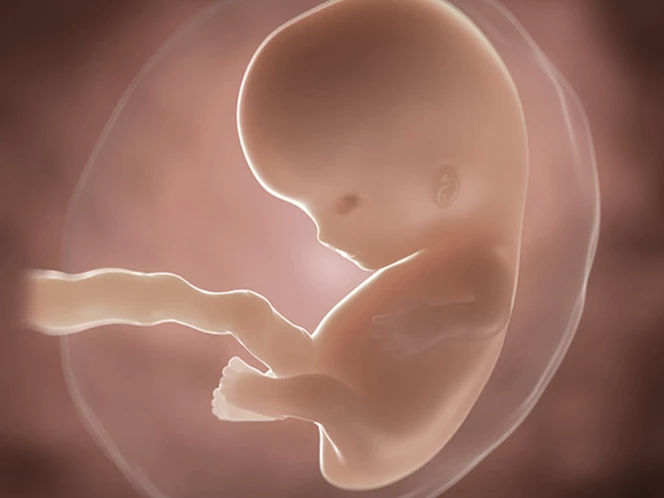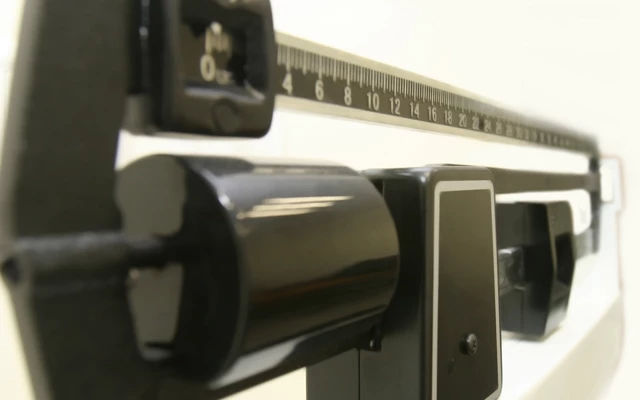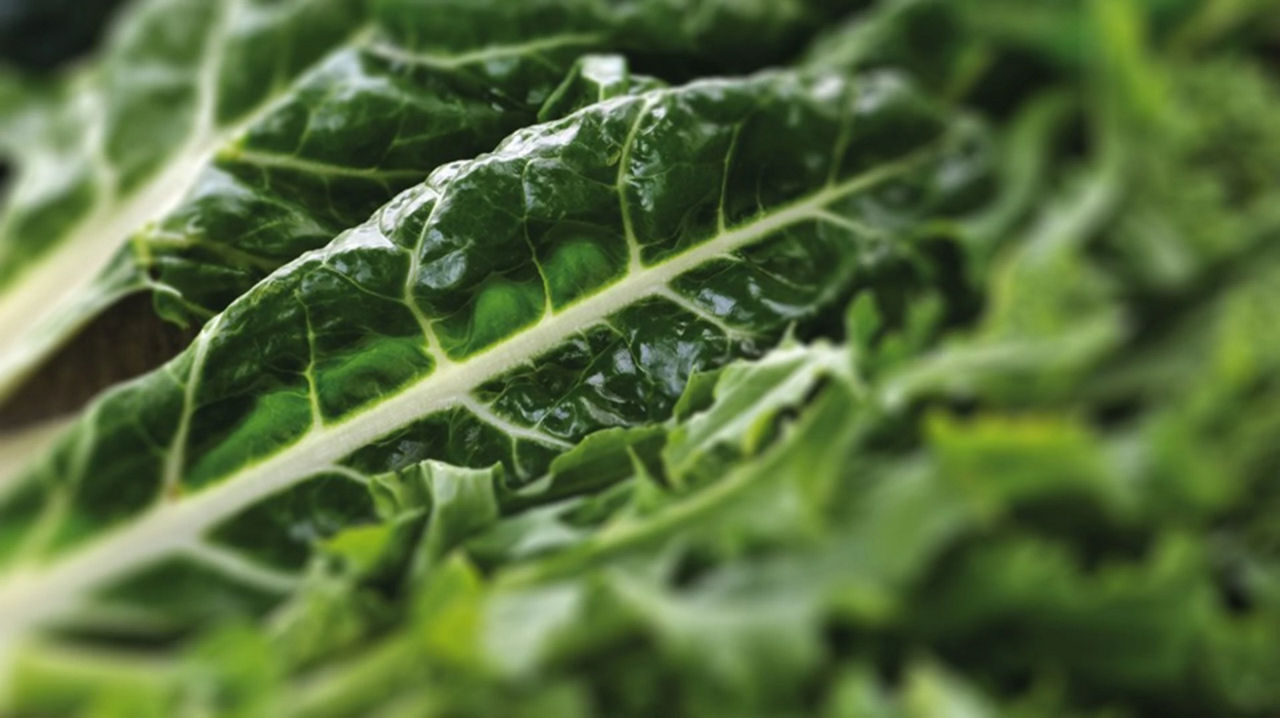When you’re 8 weeks pregnant, you’re at the end of the second month of your pregnancy, and over halfway through your first trimester.
8 weeks pregnant: pregnancy symptoms and your baby’s development

Explore pregnancy stages week by week
8 weeks pregnant is how many months?
Month 2 (Trimester 1)
Your baby’s development at 8 weeks pregnant
At 8 weeks pregnant (you might sometimes hear this referred to as 8 weeks of gestation), your baby is now called a foetus.
Still nestled safely within the amniotic sac, the foetus is still getting all the nutrients it needs for growth and development from the yolk sac1. Your baby’s legs have grown a lot in the last two weeks. Although they’re still waiting for their toes, knees and ankles to form, it won’t be long before they do1.
Their arms are also starting to grow, and are currently bigger than their legs. This is because your baby’s upper body grows faster than the lower part2.
Inside their body, tiny lungs are now starting to grow3, and by the time you reach the end of week 8, your baby will have webbed fingers and toes that will become their hands and feet3.
Incredibly, your baby is already starting to move around inside the amniotic sac, but it will be several weeks before these movements are strong enough for you to notice3.

How big is my baby at 8 weeks pregnant, and what do they look like?
At 8 weeks pregnant your baby is around the size of a raspberry, and measures approximately 16 mm long. Whilst still tiny now, your baby is due to double in size as they grow over the next couple of weeks2.
Your baby still looks a little like a tadpole, with a bump that forms the head at one end, and a tail at the other. However, their head has started to uncurl2, and the tail will soon disappear and transform into your baby’s back3.
Your baby’s face is really starting to take shape. The eyes (which now have pigment in them) are becoming more obvious, and there’s a tongue - already with tiny taste buds - in your baby’s mouth4.
Pregnancy at 8 weeks (1st trimester): what changes are happening in your body?
Around this time, several pregnancy symptoms may be causing you some discomfort: swollen breasts, morning sickness, and bloating to name just a few.
Whilst your tummy might feel bloated, you won’t yet have developed a noticeable baby bump, and you’re unlikely to look pregnant if this is your first pregnancy2. As such, you’re in luck if you’d prefer to keep your pregnancy to yourself for a little while longer. However, if you’ve had a baby before, your tummy may look pregnant, even at this early stage, as the muscles and ligaments have been stretched in your previous pregnancy.
At 8 weeks pregnant, the placenta is also growing and developing. It’s forming structures that resemble branches, which will attach themselves to the wall of your uterus. This will allow the placenta to provide your baby with the nutrients and oxygen they need and carrying waste products away2.
8 weeks pregnant: signs and symptoms
If you haven’t experienced any symptoms so far, some of them may now start to kick in.
Take a look below at some of the common 8-week pregnancy symptoms.
Soreness and discomfort in your breasts is a common pregnancy symptom - it’s the result of those vital pregnancy hormones making their way around your body5.
You might also notice that your breasts are getting bigger, and that your nipples are becoming darker in colour and standing out more6.
If you start to feel uncomfortable, it’s worth trying a maternity bra, as this will help to support your breasts as your pregnancy progresses.
Feeling tired, or even exhausted? Well, you’re not alone. It’s normal to feel like this during your first trimester7.
While it might be easier said than done (especially if you’re working and/or have other children to look after), rest whenever possible. Eating a healthy pregnancy diet and drinking plenty of water can also help boost your energy levels.
During pregnancy, nausea and vomiting - also known as morning sickness - are something lots of women experience. Despite the name, it can happen at any time of the day or night.
Most women find that any nausea and vomiting eases anywhere between 16 and 20 weeks of pregnancy, although for some women it will go on for longer8.
Feeling queasy?
While it can be unpleasant, morning sickness is unlikely to harm your growing baby. In fact, nausea is usually a sign of a healthy pregnancy (9). Try some of these suggestions to ease your symptoms8:
- Get plenty of rest.
- Eat a dry cracker, toast or plain biscuit before getting out of bed.
- Eat little and often.
- Drink plenty of fluids.
- If drinking is proving difficult, ice lollies, ice cubes, or simply sips of whatever you can stomach will keep you hydrated.
- Try including ginger in your diet as a freshly infused tea or non-alcoholic ginger beer.
- Try motion sickness bands. They are worn on the wrist and positioned to press on an acupuncture point. Some women find acupuncture helpful.
- If you’re taking anti-sickness medication, take the first dose 30 minutes before you get out of bed in the morning.
Bear in mind that your body may respond differently on different days. Keep experimenting with the suggestions above, and if you’re concerned that you’re not eating or drinking enough because of your nausea, let your midwife or GP know.
At 8 weeks pregnant, the pregnancy hormone progesterone is busy relaxing your womb and digestive system muscles. This can lead to you becoming bloated or feeling bloated10.
If this is something you’re experiencing, here are a few tips to help you beat the bloat10:
- Eat smaller meals more frequently, and eat your food slowly.
- Avoid eating late at night.
- Sip water and other fluids.
- Take a stroll after eating - a great excuse to enjoy some fresh air.
Light spotting and bleeding are common symptoms of early pregnancy. In most cases, this is completely harmless and is the result of the embryo implanting itself into the lining of your womb. This is known as implantation bleeding6.
In addition, as your body changes during pregnancy, and the ligaments and muscles stretch, you may experience some mild cramping. This could also be the result of trapped wind or constipation11.
If, at any stage of your pregnancy, you experience any bleeding or severe and unmanageable pain that’s accompanied by bleeding, you should always seek medical advice, just to be on the safe side.
As your pregnancy progresses, your uterus gets bigger to accommodate your growing baby. This can put pressure on your bladder, causing frequent trips to the bathroom for a wee.
Whilst reducing the amount of fluid you drink might be tempting, it’s important to drink plenty to ensure that you stay hydrated.
Have you all of a sudden become sensitive to smells, for example, cooking or certain foods? At 8 weeks pregnant, you might notice changes to your sense of smell6, although there’s no conclusive evidence of what might cause this12.
Pregnancy can sometimes feel like an emotional rollercoaster, accompanied by mood swings and feelings that are very up and down.
If this is something you’re experiencing, you’re not alone. There are a lot of hormonal changes going on during pregnancy, and the hormones progesterone and oestrogen may well be responsible for any mood swings you’re having13.
Aim to eat a healthy and balanced diet, and try light exercise if you feel up to it. You can learn more about the benefits of exercise in pregnancy here. Don’t hesitate to discuss your feelings with friends and family if you feel able to, and if you have any concerns about how you’re feeling, seek advice from your doctor or midwife.
One of the more enjoyable ‘symptoms’ of pregnancy you can look forward to is thicker, shinier hair. Due to hormonal changes, more of your hair stays in the anagen phase for longer - the phase where the cells in the root of your hair divide and more new hair is produced14.
Headaches are extremely common during pregnancy. They can be unsettling to deal with, but the good news is that they’re not usually harmful to your baby and tend to subside as your pregnancy progresses15.
Although in most cases headaches are nothing to be concerned about, sometimes they can be a sign of preeclampsia. Always seek medical advice if15:
- Your headaches become more severe.
- You’re vomiting.
- There are problems with your vision, for example seeing flashing lights. And or visual disturbances
- You notice swelling in your hands, feet, ankles or face.
If you’re experiencing more discharge than usual at 8 weeks pregnant, rest assured this is a common symptom not just in early pregnancy but right up until your due date too16. It’s likely due to increased blood flow and hormonal changes, and it’s function is to help prevent any infections from travelling to your uterus16.
Milky white vaginal discharge, or discharge that’s clear or thin and doesn’t smell is perfectly healthy. But speak with your healthcare professional if you have discharge that’s unusual for you, or that’s16:
- Green or yellow.
- Unpleasant in smell.
- Accompanied by itching and soreness around your vagina, or pain when you go for a wee.
What prenatal vitamins and supplements should I be taking at 8 weeks pregnant?
You can get most of the nutrients, vitamins and minerals you and your baby need from a healthy, balanced diet. However, there are certain supplements and prenatal vitamins that your healthcare professional will recommend you take.
Folic acid is one of the most important supplements and prenatal vitamins for pregnancy. It supports your baby’s neural tube as it develops into their spinal chord and brain, and can help to reduce the risk of spina bifida17.
At 8 weeks pregnant, you’re advised to take 400 mcg of folic acid every day, as well as a daily 10 mcg supplement of vitamin D17.
It’s very important that you don’t take cod liver oil or other supplements containing vitamin A, as too much of this can be harmful to your baby17.
Vegetarian and vegan diets in pregnancy
If you’re vegetarian or vegan, there’s no reason why you can’t get all the nutrients you and your baby need from a varied diet. However, you’ll need to ensure you get enough of the vitamins found mainly in meat, fish, and dairy products.
Vegetarian and vegan diets usually have the benefit of being high in carbohydrates, which is your growing baby’s main source of energy18. But it can be harder to get certain vitamins from a plant-based diet, for example, vitamin B12, calcium, iron, iodine and omega-3:
Vitamin B12 is typically found in meat, dairy products and eggs. It’s very important throughout your pregnancy, but especially in the first trimester, due to its role in helping the body process folic acid. Fortified yeast extracts (Marmite), dairy alternatives and breakfast cereals are good sources of vitamin B12, but you may need to take a supplement if you’re following a vegan diet19.
Calcium is important for the growth of your baby’s bones and for maintaining your bone health. Good non-dairy sources of calcium include fortified dairy-free cheese, milks (soya, oat, almond, for example), set tofu and some leafy green vegetables such as spinach, broccoli, watercress and kale20.
Iron helps you and your baby make red blood cells. It’s found in pulses, dark green vegetables, fortified breakfast cereals (with added iron), and dried fruit, such as apricots21. Add iron-rich sources to your snacks and meals by incorporating quinoa, lentils, chickpeas, beans and tofu. Cashew nuts, chia seeds, figs and raisins make healthy and tasty snacks. Remember that vitamin C also helps your iron absorption, so look for ways to bring more into your diet, too22.
Iodine is important for your baby's brain development23. Because white fish (like cod and haddock), eggs and dairy products are the primary sources of iodine, it’s best to speak with your healthcare provider about taking an iodine supplement during your pregnancy if you’re vegan19. Levels of iodine in plant-based milk and dairy alternatives can vary, so check the nutrition tables carefully, as not all brands fortify their products with iodine.
Omega-3 plays an important role in your baby’s rapidly developing brain, as well as their nervous system and eyes24. Plant-based sources include walnuts, omega-3 enriched eggs, flaxseeds and rapeseed oil. Some experts also recommend that pregnant vegans take a daily supplement containing around 300 milligrams of DHA (or DHA and EPA) from microalgae25.
8 weeks pregnant: next steps
At 8 weeks pregnant, you’re over halfway through your first trimester. Looking ahead to the rest of your pregnancy, let’s look at some of the things you might want to think about as you start to prepare for parenthood:
- Your dating scan. Whilst there’s no set 8-week scan, your first ultrasound (also known as the dating scan) can take place anywhere between 8 and 14 weeks. At the scan, the sonographer will check your baby’s development and determine a more accurate due date26.
- Staying active. Exercise is a great (and safe) way to help your body prepare for labour27, and has lots of benefits for you and your baby. Walking, yoga, and swimming are all good examples of exercises you can enjoy as your pregnancy progresses.
- Antenatal classes. Now is a good time to start considering whether you’d like to attend antenatal classes, especially as some tend to book up fast. They’re a great way to meet other parents and provide helpful advice and information about labour and birth. Your midwife should be able to provide you with some options in your local area.
- Get up to speed with the antenatal care and vaccinations you’ll be offered during your pregnancy to know what to expect.
- If you’re working, consider the time off you’d like to take, your rights, and when you plan to tell your employer about your pregnancy.
- NHS. You and your baby at 8 weeks pregnant [online] 2021. Available at https://www.nhs.uk/pregnancy/week-by-week/1-to-12/8-weeks/. [Accessed April 2025]
- NHS Start for Life. Pregnancy week 8 [online]. Available at https://www.nhs.uk/start-for-life/pregnancy/week-by-week-guide-to-pregnancy/1st-trimester/week-8/#look-like. [Accessed April 2025]
- NHS Inform. How your baby develops week to week [online] 2024. Available at https://www.nhsinform.scot/ready-steady-baby/pregnancy/your-baby-s-development/how-your-baby-develops-week-to-week/#:~:text=The%20first%208%20weeks,-The%20first%202&text=It's%20also%20the%20time%20when,even%20know%20you're%20pregnant. [Accessed April 2025]
- NHS 111 Wales. Pregnancy guide - your baby at 9 weeks [online] 2023. Available at https://111.wales.nhs.uk/livewell/pregnancy/9to12weeks/. [Accessed April 2025]
- de Holanda AA, Gonçalves AK, de Medeiros RD, de Oliveira AM, Maranhão TM. Ultrasound findings of the physiological changes and most common breast diseases during pregnancy and lactation. Radiol Bras. 2016 Nov-Dec;49(6):389-396. doi: 10.1590/0100-3984.2015.0076. PMID: 28057965; PMCID: PMC5210035.
- NHS. Signs and symptoms of pregnancy [online] 2022. Available at https://www.nhs.uk/pregnancy/trying-for-a-baby/signs-and-symptoms-of-pregnancy/#:~:text=Sore%20breasts%20in%20early%20pregnancy,may%20darken%20and%20stand%20out. [Accessed April 2025]
- NHS. Tiredness and sleep problems in pregnancy [online] 2024. Available at https://www.nhs.uk/pregnancy/related-conditions/common-symptoms/tiredness/#:~:text=Is%20it%20normal%20to%20feel,rest%20as%20much%20as%20possible. [Accessed April 2025]
- NHS. Vomiting and morning sickness [online] 2024. Available at https://www.nhs.uk/pregnancy/related-conditions/common-symptoms/vomiting-and-morning-sickness/. [Accessed April 2025]
- NHS University Hospitals Sussex. Nausea and vomiting in pregnancy [online 2023]. Available at https://www.uhsussex.nhs.uk/resources/nausea-and-vomiting-in-pregnancy-2/. [Accessed April 2025]
- NHS Start for Life. Pregnancy week 10 [online]. Available at https://www.nhs.uk/start-for-life/pregnancy/week-by-week-guide-to-pregnancy/1st-trimester/week-10/. [Accessed April 2025]
- NHS. Stomach pain in pregnancy [online] 2024. Available at https://www.nhs.uk/pregnancy/related-conditions/common-symptoms/stomach-pain/#:~:text=Stomach%20(abdominal)%20pains%20or%20cramps,a%20poo%20or%20pass%20wind. [Accessed April 2025]
- Jain L, Vashisht NK, Jadia S, Nayak P, Jain M. Alterations in Smell During Pregnancy: Myth or Fact? Indian J Otolaryngol Head Neck Surg. 2022 Jun;74(2):146-149. doi: 10.1007/s12070-020-02243-8. Epub 2020 Oct 30. PMID: 35813776; PMCID: PMC9256883.
- Tommy's. Emotional changes in pregnancy [online 2024]. Available at https://www.tommys.org/pregnancy-information/im-pregnant/mental-wellbeing/emotional-changes-pregnancy. [Accessed April 2025]
- Gizlenti S, Ekmekci TR. The changes in the hair cycle during gestation and the post-partum period. J Eur Acad Dermatol Venereol. 2014 Jul;28(7):878-81. doi: 10.1111/jdv.12188. Epub 2013 May 20. PMID: 23682615.
- NHS. Headaches in pregnancy [online 2024]. Available at https://www.nhs.uk/pregnancy/related-conditions/common-symptoms/headaches/. [Accessed April 2025]
- NHS. Vaginal discharge in pregnancy [online 2024]. Available at https://www.nhs.uk/pregnancy/related-conditions/common-symptoms/vaginal-discharge/#:~:text=When%20you're%20pregnant%2C%20it's,and%20should%20not%20smell%20unpleasant. [Accessed April 2025]
- NHS. Vitamins, minerals and nutrition in pregnancy [online] 2023. Available at https://www.nhs.uk/pregnancy/keeping-well/vitamins-supplements-and-nutrition/#:~:text=But%20when%20you're%20pregnant,you're%2012%20weeks%20pregnant. [Accessed April 2025]
- Pathirathna ML, Nandasena HMRKG, Samarasekara BPP, Dasanayake TS, Weerasekara I, Haruna M. Is Maternal Carbohydrate Intake Having an Impact on Newborn Birth Weight? A Systematic Review. Nutrients. 2023 Mar 28;15(7):1649. doi: 10.3390/nu15071649. PMID: 37049491; PMCID: PMC10096855.
- The Association of UK Dietitians (BDA). Pregnancy and diet [online 2020]. Available at https://www.bda.uk.com/resource/pregnancy-diet.html#:~:text=Yes.,plant%2Dbased%20diet%20sheet). [Accessed April 2025]
- NHS Milton Keynes University Hospital. Sources of calcium for a cow's milk free diet [online]. Available at https://www.mkuh.nhs.uk/patient-information-leaflet/sources-of-calcium-for-a-cows-milk-free-diet. [Accessed April 2025]
- Tommy's. Iron in pregnancy [online 2024]. Available at https://www.tommys.org/pregnancy-information/im-pregnant/nutrition-in-pregnancy/iron-pregnancy. [Accessed April 2025]
- The Vegan Society. A Nutrition Guide for pregnancy & breastfeeding. [Online 2017]. Available at https://www.vegansociety.com/sites/default/files/uploads/downloads/Pregnancy%20%26%20breastfeeding%20PDF_0.pdf [Accessed April 2025]
- World Health Organization. Iodine in pregnancy and lactation [online 2017]. Available at https://www.who.int/tools/elena/bbc/iodine-pregnancy#:~:text=Iodine%20is%20essential%20for%20the,to%20the%20fetus%20(2). [Accessed April 2025]
- Jensen CL. Effects of n− 3 fatty acids during pregnancy and lactation. Am J Clin Nutr 2006;83(Suppl 6):S1452-1457
- Davis, B., & Melina, V. (2014). Becoming Vegan: The Complete Reference to Plant-Based Nutrition. Book Publishing Company.
related articles
Read More

Need some help?
You can get quick answers to common questions in our FAQs.
Alternatively, if you need help with general pregnancy or baby advice, or maybe on using or ordering our products - our expert team are always on hand to talk about feeding your baby.





